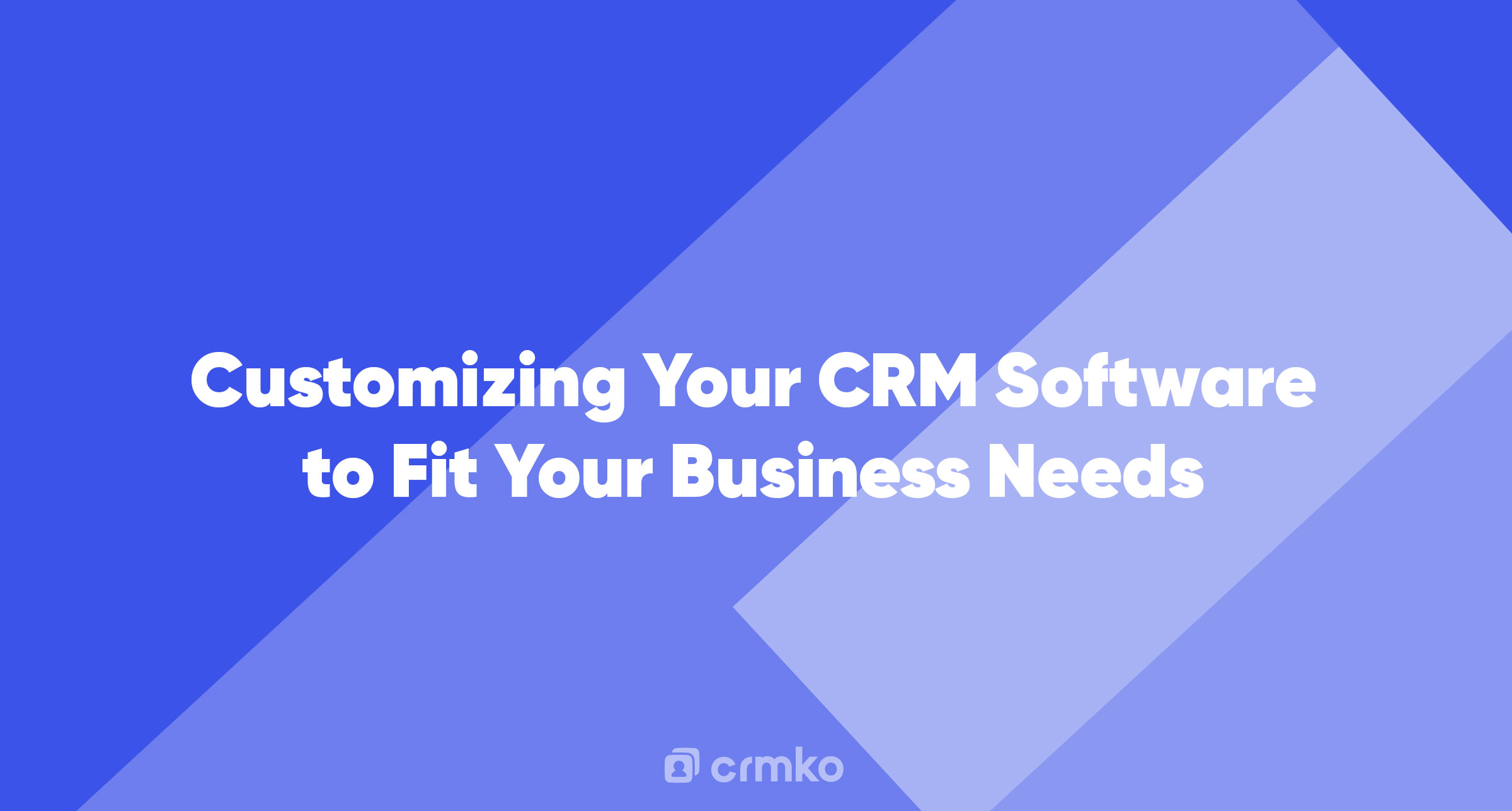In the dynamic world of business, a one-size-fits-all approach rarely meets all the unique needs of a company. This is especially true for Customer Relationship Management (CRM) software, a pivotal tool for managing interactions with current and potential customers. Customizing your CRM software to align with your business needs can significantly enhance efficiency, productivity, and customer satisfaction. This article will guide you through the importance of customization and how to tailor your CRM to fit your business like a glove.
Understanding the Importance of CRM Customization
CRM customization is the process of modifying and configuring the software to meet the specific needs, preferences, and goals of a business. Customization can range from simple adjustments like changing layouts and fields to more complex modifications like integrating additional features and functionalities. A well-customized CRM can offer the following benefits:
- Enhanced Efficiency: Tailoring CRM to match your workflow reduces manual effort and streamlines processes, saving time and resources.
- Improved User Adoption: A CRM that aligns with user needs and preferences is more likely to be embraced by the team, leading to successful implementation.
- Increased Customer Satisfaction: Customization allows for more personalized interactions with customers, leading to better experiences and higher satisfaction levels.
Steps to Customize Your CRM Software
1. Define Your Objectives
Before diving into customization, clearly define what you aim to achieve. Identify your business processes, pinpoint gaps in your current system, and establish the goals you want your customized CRM to fulfill.
2. Prioritize User Needs
Involve end-users in the customization process. Gather their feedback on the features and functionalities they need and prioritize these requirements. This ensures that the customized CRM is user-friendly and meets the team's needs.
3. Configure and Personalize
Start with basic configurations like modifying fields, layouts, and dashboards to match your business processes. Personalize the user interface to make it intuitive and user-friendly, ensuring quicker adoption by the team.
4. Integrate Additional Features
Identify and integrate additional features and functionalities that can enhance your CRM’s capabilities. This could include adding automation, analytics, or integrating with other tools and platforms used by your business.
5. Test and Optimize
After customization, rigorously test the CRM to ensure that all modifications work seamlessly. Gather feedback from users and continuously optimize the system to address any issues and enhance performance.
Examples of CRM Customization
a. Custom Fields and Modules
Adding custom fields and modules can help in capturing information that is specific to your business, allowing for more detailed customer profiles and better segmentation.
b. Workflow Automation
Customizing workflows and automating repetitive tasks can significantly reduce manual effort and enhance efficiency, allowing the team to focus on more value-added activities.
c. Personalized Dashboards
Creating personalized dashboards can help users quickly access the information they need, improving decision-making and productivity.
d. Third-party Integrations
Integrating CRM with other tools and platforms used by your business can streamline operations and provide a more holistic view of customer interactions across different channels.
Conclusion
Customizing your CRM software is like tailoring a suit – it ensures a perfect fit with your business needs, allowing you to operate at your best. It not only enhances efficiency and productivity but also improves user adoption and customer satisfaction. By defining clear objectives, prioritizing user needs, configuring, personalizing, integrating additional features, and continuously optimizing, you can create a CRM system that is a true asset to your business.
Remember, the journey doesn’t end with customization. Regularly review your CRM system, keep abreast of the latest features and technologies, and continue to optimize it to ensure it evolves with your business needs. In a world where customer is king, a well-customized CRM is your trusted knight, helping you serve your customers better and stay ahead in the competitive business landscape.
